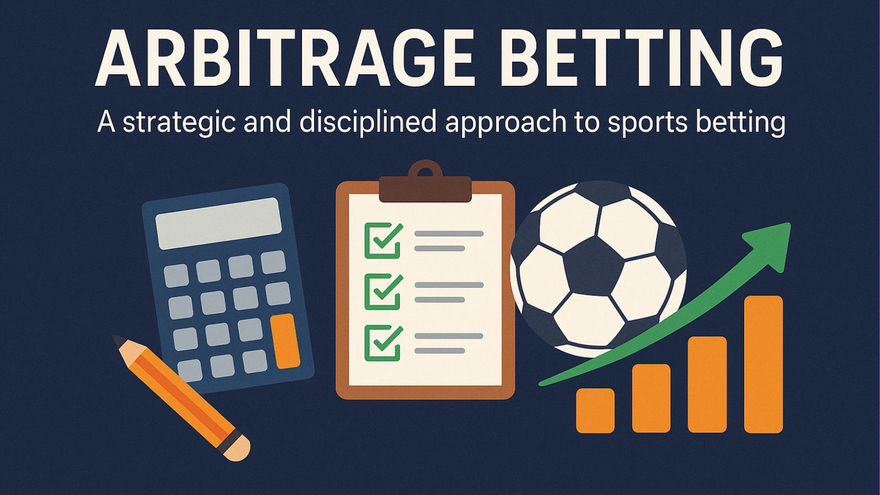Arbitrage betting, commonly known as "sure betting" or "arbing," is a sports betting strategy that enables bettors to exploit differences in odds provided by various bookmakers. The main concept is straightforward: by placing bets on all possible outcomes of a sporting event with different bookmakers, you can ensure a profit regardless of the event's result.
It’s a technique based on mathematics, not luck — and when executed correctly, it eliminates the risks associated with gambling.
Let’s explore how arbitrage betting works, its pros and cons, and the tools used by professional arbers.
How Does Arbitrage Betting Work?
To understand arbitrage betting, consider this simple example:
Let’s say there's a tennis match between Player A and Player B, and two different bookmakers offer the following odds:
Bookmaker 1:
Player A to win: 2.10
Bookmaker 2:
Player B to win: 2.10
You place:
₹100 on Player A with Bookmaker 1
₹100 on Player B with Bookmaker 2
Possible Outcomes:
If Player A wins: You get ₹210 from Bookmaker 1
If Player B wins: You get ₹210 from Bookmaker 2
Your total stake: ₹200
Your guaranteed return: ₹210
Profit: ₹10 regardless of the outcome
This is a basic arbitrage opportunity where the combined implied probability of all outcomes is less than 100%, indicating a chance to profit.
The Arbitrage Formula
To find out if a bet is an arbitrage opportunity, use this formula:
(1 / Odds A) + (1 / Odds B) < 1
If the result is less than 1, you’ve found an arbitrage bet.
Example:
(1 / 2.10) + (1 / 2.10) = 0.476 + 0.476 = 0.952 Since 0.952 < 1, this is an arbitrage opportunity.
Types of Arbitrage Betting
1. Two-way Arbitrage:
In events with two possible outcomes (e.g., tennis, boxing), place bets on both players.
2. Three-way Arbitrage:
Used in events with three possible outcomes (e.g., football matches: home win, draw, away win).
3. Live Arbitrage (In-Play):
Opportunities that arise due to real-time changes in odds during a live event.
Tools and Software Used
Since arbing opportunities are rare and often exist for short periods, professional bettors use tools like:
Odds comparison websites
Arbitrage software
Bet calculators to split the stake correctly
These tools help detect discrepancies in real time and calculate optimal stake distribution.
Pros and Cons of Arbitrage Betting
✅ Pros:
Guaranteed Profit: If executed correctly, there’s no risk of losing money.
No Gambling Knowledge Needed: Purely math-based, not prediction-based.
Works Across Sports: Applicable to many sports and markets.
❌ Cons:
Limited Availability: Bookmakers adjust odds quickly.
Account Restrictions: Many bookmakers limit or ban arbers.
Requires Speed and Accuracy: Mistakes can turn a sure win into a loss.
High Volume, Low Margin: Profits per bet are small (often 1–5%), requiring multiple bets for meaningful returns.
Is Arbitrage Betting Legal?
Arbitrage betting is legal in most jurisdictions, but not welcomed by bookmakers. They may:
Void bets
Limit stakes
Close accounts
It’s advisable to read the terms and conditions of each bookmaker and manage arbing activity discreetly.
Arbitrage betting is a strategic and disciplined approach to sports betting. It demands accuracy, constant attention, and the use of the right tools, but for those who are committed, it offers consistent and low-risk returns. This isn’t a get-rich-quick tactic—it’s a methodical strategy that rewards patience, precision, and a strong grasp of numbers.
Also know about the below terms
















